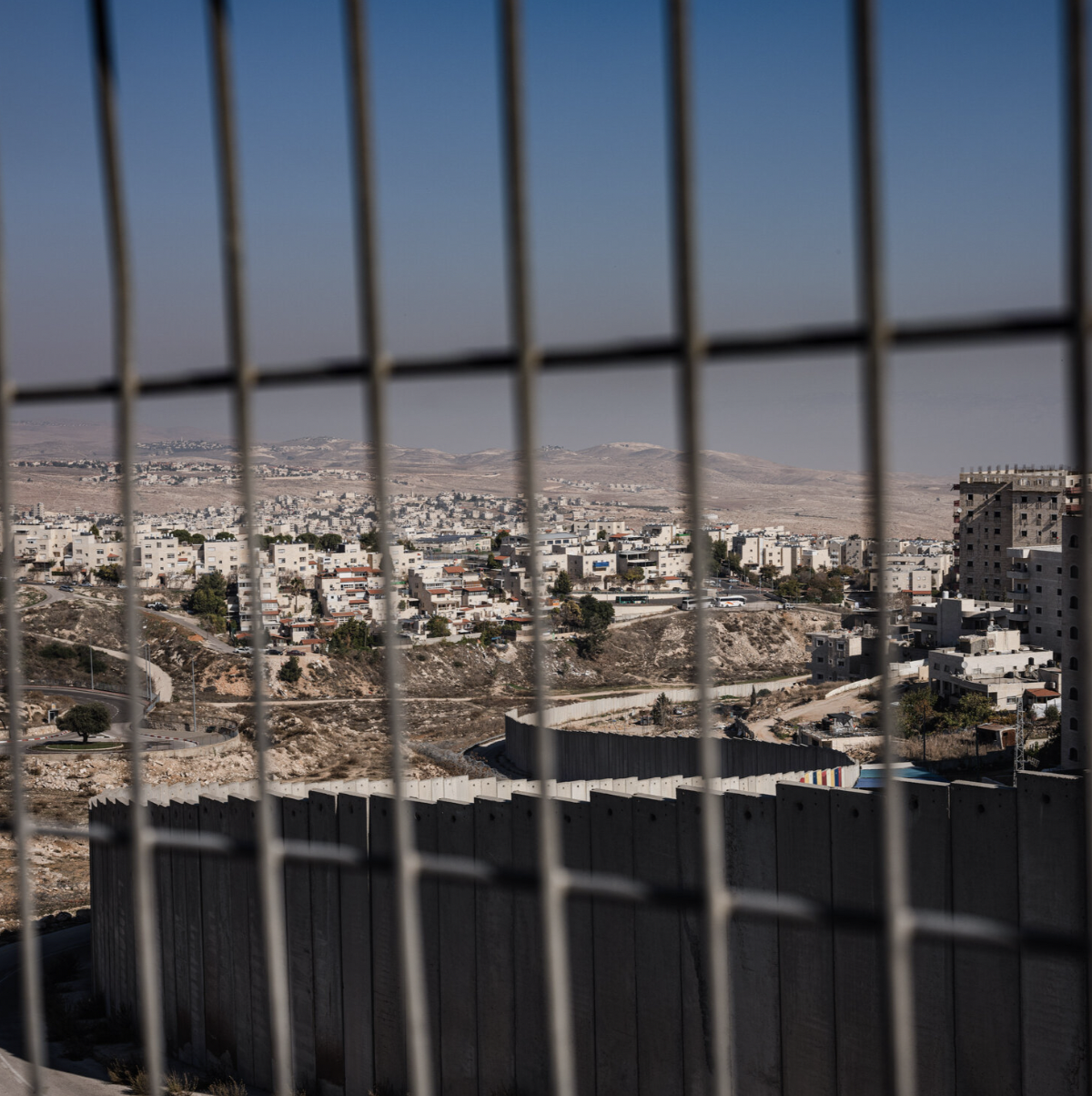This post is also available in: Français (French) العربية (Arabic)
More and more wives of Palestinian prisoners in Israeli jails are using their husbands’ sperm ‘smuggled’ in makeshift test tubes for in vitro fertilization (IVF). At first, many of them were reluctant to talk about this issue for fear of suspicion and criticism from neighbors and clerics, until an edict of the Palestinian Supreme Fatwa Council in 2017 authorized the practice in cases where men face long sentences.
According to Addameer, the prisoner support and human rights association, there are currently 4650 Palestinians locked up in Israeli prisons. Many have sentences of 20 or even 40 years and smuggling sperm is the only way to preserve their reproductive rights in a war that seems to have no end.
The heavy restrictions of the Israel Security Agency (ISA) indeed prohibit conjugal visits and only allow meetings through glass windows and telephone conversations. Children under the age of 10 are the only ones allowed to hug their fathers for a few minutes, who in these fleeting contacts give chocolate bars or sweets with makeshift test tubes, usually pen tubes, containing their hidden semen.
The figures released by Middle East Monitor in February 2021 revealed that 96 children have been born so far using this method, which local clinics offer free of charge to the wives of fighters because they are considered as ‘living martyrs’ for the collective good.

Italian photographer Antonio Faccilongo (Rome, 1979) told their stories in the project ‘Habibi’, ‘my love’ in Arabic, winner of the World Press Photo “Story of the Year”, devoted to stories of international journalistic relevance, and of the ‘Long-Term project Award’ organized by the same organization.
“The photojournalistic perspective of the photographer, along with the uniqueness of the story, have created a masterpiece,” commented jury member Ahmed Najm, of the Iraqi Metrography Agency. “This is a story of human struggle in the 21st century: a story about those unheard voices that can reach the world if we, the jury, act as a medium.”
The figures released by Middle East Monitor in February 2021
revealed that 96 children have been born so far using this method
Instead of photographing the military occupation, the guerrilla actions, the injured and the destroyed houses, Faccilongo chose to tell the story of the impact war has on the lives of ordinary people and the difficulties faced daily by the families of political prisoners. Every day, the determination of the wives left alone reaffirms the power of love against abuse and violence: for some, this is the only possible form of resistance.
With a delicate, intimate and respectful gaze, the author captures the complex combination of presence and absence, hope and desperate waiting in empty bedrooms, in youth photos, in letters from prison, in the faces of children who grew up without a father and their mothers who are strong, courageous and deeply lonely women(1).
In order to counter the spread of the phenomenon, in 2013, the Israeli government imposed a drastic reduction in visits, punishing prisoners with even more extreme methods of imprisonment. Abdul Karim, who has been serving a 25-year sentence since 2001, had to pay around $1,500 for the in-vitro conception of baby Majd with his wife Lydia Rimawi, and was unable to receive visitors for two months.

Over time, the bans have loosened, but the relatives of the detainees often face long and difficult journeys to reach them in prison: little 9-year-old Majd leaves with his mother at 5 a.m. from Beit Rima, near Ramallah, takes three buses and crosses a checkpoint to be able to hug his father for only a few minutes.
“At the award ceremony, the families I photographed were connected online, because it was their award,” Faccilongo said in an interview. “We talk every day, the children send me photos of their first day of school, as if I were their uncle from Rome. It baffles me when some colleagues tell me they don’t know what happened to the people they have photographed. I’m not saying it’s better to do as I do, but it seems impossible to me to do otherwise.”
Dating back to 2008, his first trip to Palestine was to bring medicine and humanitarian aid to Gaza, which was under embargo. “I was already a photographer during the second intifada and decided to document those clashes, but I returned home with a great burden for what I had seen and witnessed with my own eyes,” he recalls in a video interview. “I couldn't not continue documenting that territory, but I wanted to tell something different from the war. I thought it was very important to talk about the daily difficulties these people face in order to restore their dignity. So, I started to follow the stories of the prisoners' families.”
(1) The photographer also devoted another project called “(Single) women”, to mothers, spouses and sisters of Palestinian political prisoners locked up in Israel who live alone, struggling to support their families, “both economically and emotionally”.
Click here to read the original Italian version of the article.































